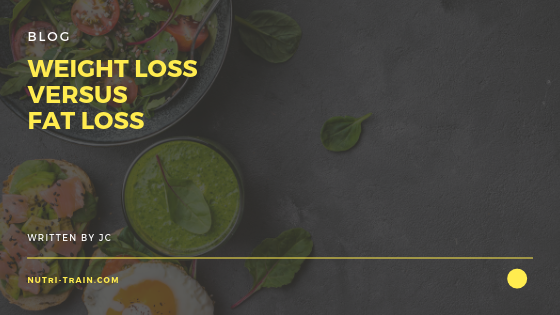|
When it comes to optimal health, your goal should be fat loss, not weight loss. I’ve spoken about the differences in terminology between the fitness industry and health institutes before, and here we have another example. The fitness industry is geared towards fat loss, and even though we may use the hashtag ‘weight-loss’, our information is geared towards helping you decrease your body fat, and your weight loss is a natural by-product of that process. The age of the scales had people believing that their weight determined their health, but it wasn’t, and it isn’t. When you lose weight, you’re also losing muscle, water and fat, which doesn’t promote optimal health. Why? Because being lighter doesn’t mean you’re healthier. Muscle weighs twice as much as fat and is extremely essential in metabolic health, longevity and your overall health, which would mean that if you followed the age-old advice, and not focusing on your fat-loss specifically, you could run into other problems. Yes, focusing on both weight and fat loss will help you achieve better health, but the key difference is the mindset with which you approach your goal. From experience, goals and strategies focused on fat loss have a bigger and better impact on your overall health and wellness, mainly as you’re looking to maintain or increase your muscle mass, something you’ll need in old age, too. Weight loss becomes a natural and happy by-product. Below are three things you can do differently to help you increase you lean muscle mass while trying to ‘lose weight.’
I’d love to know what you think, so please leave me a comment or reach out. Speak soon, JC. [1] https://www.ncbi.nlm.nih.gov/pmc/articles/PMC2951287/ [2] https://academic.oup.com/ajcn/article/87/5/1558S/4650426
0 Comments
Leave a Reply. |
AuthorsJC and The Nutri-Team Archives
November 2020
Categories
All
|

 RSS Feed
RSS Feed
